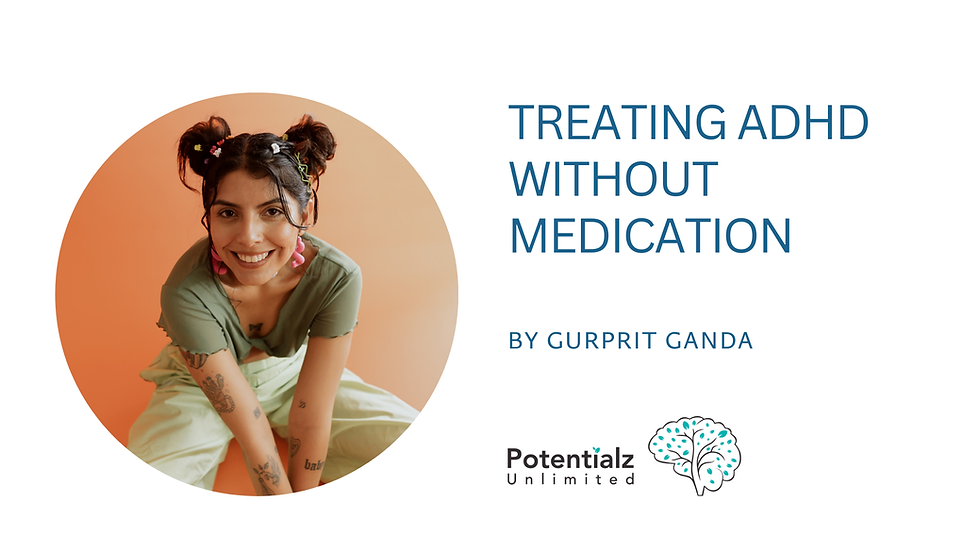Debunking the Myths: ADHD, IQ, and Giftedness
- Gurprit Ganda

- Oct 5, 2024
- 2 min read

Understanding ADHD
Attention Deficit Hyperactivity Disorder (ADHD) is a neurodevelopmental disorder affecting about 5-7% of children and 2-4% of adults worldwide. It is characterized by symptoms of inattention, hyperactivity, and impulsivity, significantly impacting daily life. Despite being well-studied, misconceptions about ADHD persist, especially regarding intelligence and giftedness.

Common Misconceptions on ADHD and IQ
ADHD and Intelligence
In popular media, it is often claimed that individuals with ADHD are of higher intelligence or more likely to be gifted. This belief has been perpetuated for decades, leading many to think that ADHD might be a desirable trait. However, research contradicts this notion. Studies have shown that people with ADHD span the entire range of intelligence found in the general population.
On average, individuals with ADHD tend to have a slightly lower IQ than those without the disorder. This difference is about 7-10 points, which can significantly impact daily functioning.
Reasons for Lower IQ Scores
Several factors may explain why some people with ADHD have lower IQ scores:
Poor Test-Taking Behavior: Individuals with ADHD may struggle to focus during IQ tests, resulting in lower scores.
Impact on Executive Functioning: ADHD can adversely affect executive functioning—mental skills crucial for planning and organizing tasks. Since about 40% of our IQ comprises these skills, any impairment can affect overall intelligence.
Brain Injuries or Trauma: Up to 35% of individuals with ADHD may have developed the condition due to brain injuries during development or early childhood, contributing to lower intelligence levels.
The Myth of Giftedness
ADHD and Giftedness
Contrary to popular belief, individuals with ADHD are not more likely to be gifted or of higher intelligence than others. Evidence suggests the opposite. A study published in the International Journal of Mental Health and Addiction found that while ADHD symptoms were present in both groups, gifted children with ADHD had slightly less severe symptoms than those without giftedness.
Persistence of Myths
The myth linking ADHD and giftedness persists for several reasons:
Similar Behaviors: Gifted individuals may display behaviors similar to those with ADHD, such as being easily distracted or having trouble sitting still, leading to misdiagnosis.
Boredom in School: Another claim is that gifted individuals are more likely to have ADHD due to boredom or lack of challenge in school. However, no evidence supports this claim. Studies show a slightly lower percentage of giftedness among those with ADHD compared to the general population.
Conclusion
It is time to dispel these myths. People with ADHD span the entire range of intelligence levels, just like everyone else. While they face unique challenges, their condition does not make them more or less likely to be gifted or have higher intelligence levels. As a society, we must move away from these misconceptions and focus on understanding and supporting individuals with ADHD for who they truly are.




Comments